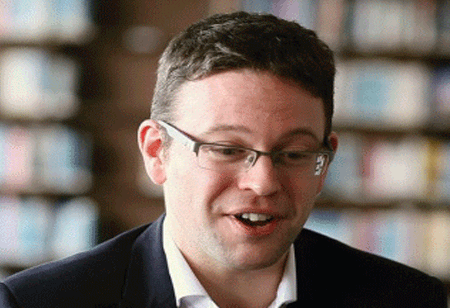Tell us more about your journey as Professor into the field of education & research. LSE is one of the foremost social science universities in the world and boasts of a phenomenal research culture on the campus. Having received my Ph.D. in 2010 from LSE, later I joined the institute as a Lecturer in the same year. Although the first day as a teacher I was little nervous but eventually I started loving the profession. LSE being an extensively research-driven institute, my research experience was a fruitful one. In the entire research process, you are supposed to answer questions which no one has been able to answer or were never bothered to answer before; hence, altogether these factors makes research an intriguing thing. If anyone aspires to enter into academics career, Ph.D. is a must for them as it provides one the capability to teach effectively and remain as a lifelong learner.
What kind of changes did you witness in the education sector since you started your career?Change is a constant element. With changing teaching methodologies over the years, I have incorporated varied changes in my teaching. At LSE now, I use a lot of examples and real life situations to teach the students and also bring the optimum practical application of the theoretical part as that commendably help learners to compre-hend concepts in a better manner. Keeping research at the helm, LSE always embraces the changing and current trends in the education arena.
Do you think classroom teaching is getting irrelevant in the present time of technological advancements?Of course, the format of classrooms is changing where traditional approach of teaching i.e. the chalk and board system is regarded as outdated. We at LSE instead assign a task to 5-6 students and ask them to work upon the same collaboratively on the topics that have been taught in the classroom. The exams we conduct mostly consist of simple and minimal question where they are encouraged to solve problems, enabling them to think and stimulate their critical analysis power.
-
Change is a constant element. With changing teaching methodologies over the years, i have incorporated varied changes in my teaching
Dr. James Abdey, Assistant Professorial Lecturer, London School of Economics & Political Science
How important is to reconstruct syllabus in a regular interval?Syllabus continuously needs to be reviewed, although that depends on subject to subject. There are some subjects which require frequent reviews whereas there are subjects that just needs an addition of some question bank which students can use as a resource.
What role Artificial Intelligence (AI) will play in the education sector in the upcoming days?
We are living in a technological era and many predictors already spoke about the major threats to the job and no doubt there will be some jobs that might get replaced by AI. But looking at the positive side, it will bring huge opportunities such as AI will be able to provide a more personalized form of education and can cater to the different needs of the students. The learners should be taught to become adaptable not only knowledgeable, they should be ready to learn new things and if this quality can be adopted, undeniably they will achieve success in future.
Most of the students today believe in access news and information from the internet. Do you think everything is reliable over the web?
From fake to real news, there is all kind of things on the internet. It is very easy to get brainwashed nowadays by reading a piece of article. Nevertheless, there are websites which have a reputation for credibility, students can definitely trust them. Their mindset should be skeptical and critical enough to be able to differentiate
Tell us the reason behind your visit to India and the collaboration with Indian School of Business and Finance (ISBF).
As ISB has collaborated with LSE, every year we hold a teacher symposium and I assume it is a great platform for teachers to gather under one roof and share knowledge among each other. ISBF offers UG Graduate Diploma Courses affiliated to LSE where students of India get the opportunity to earn LSE degree without having to leave their own country. The competitive market of 21st century definitely demands a global degree. Anyhow, it's always a pleasure to witness a large number of students coming to the UK for pursuing education. Founded in 1985, LSE under the umbrella of University of London have built an unbreakable reputation and has had a long and rewarding relationship with India. We take great pride in the international composition of students at LSE as well as the faculty body. LSE makes sure to keep updating the programmes, given which we are soon going to introduce degrees in Machine Learning, Data Science, and Business Analyst. Addressing the demand of students in India, ISBF is too on the verge of initiating the Business Analyst programme from the next year in association with LSE
Dr. James Abdey, Assistant Professorial Lecturer
Currently the Assistant Professorial Lecturer in the Department of Statistics at The London School of Economics and Political Science (LSE), Dr. James Abdey specializes in Elementary Statistical Theory, Quantitative Methods (Statistics), Aspects of Market Research and Market Research Methods. On a one-to-one interaction with HER magazine, Dr. Abdey talks about the latest developments in the education sector and the collaboration of LSE with Indian Institutions. 